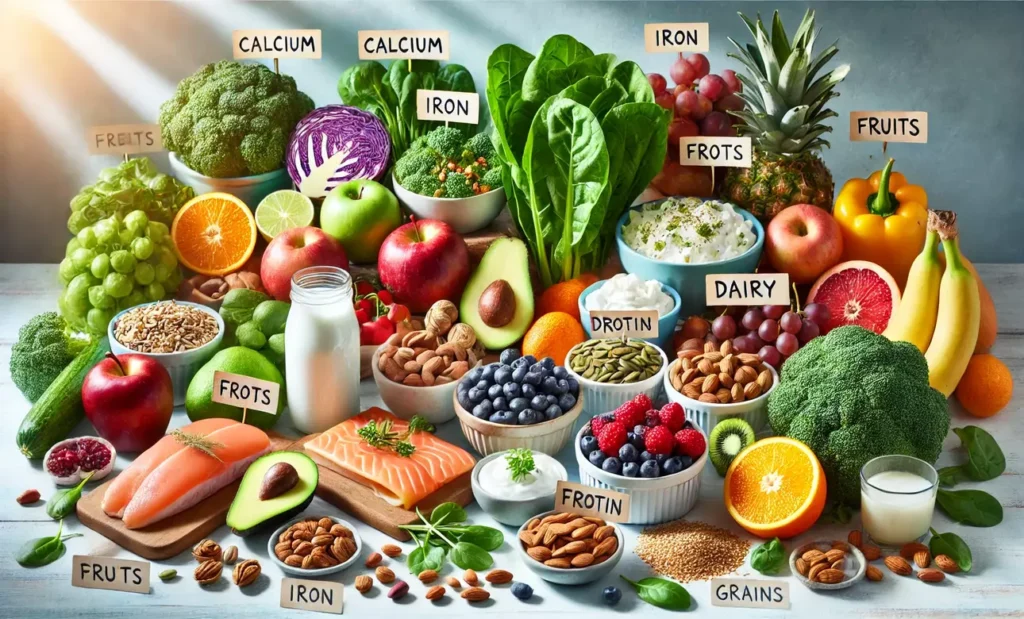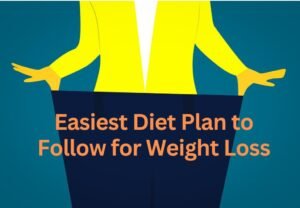Best Postnatal Vitamins: Why They Matter for New Moms

Navigating motherhood comes with numerous challenges, not least maintaining your health. After childbirth, your body undergoes significant changes, and adequate nutrition becomes paramount. This is where postnatal vitamins become important. These supplements are designed to support both new mothers and their babies, especially during breastfeeding. This article will delve into the importance of postnatal multivitamins, the essential nutrients they should contain, and how to choose the best ones for your needs.
- Why Postnatal Multivitamins Are Important
- Essential Nutrients in Postnatal Vitamins
- Comparing Prenatal and Postnatal Vitamins
- Choosing the Right Postnatal Vitamin
- Vitamins and Minerals to Look For
- Postnatal Vitamins and Breastfeeding
- Common Challenges in the Postnatal Period
- Safety and Quality Considerations
- FAQs on Best Postnatal Vitamins
- Conclusion
Why Postnatal Multivitamins Are Important
Childbirth is an incredibly demanding process that significantly depletes a woman’s body of essential nutrients. During pregnancy and childbirth, the body focuses on meeting the baby’s nutritional requirements, which can sometimes deplete the mother’s own nutrient reserves. Postnatal vitamins are crucial in replenishing these lost nutrients, supporting the mother’s recovery, and ensuring the mother and baby receive the necessary vitamins and minerals to thrive.
Postnatal vitamins are designed to meet the unique nutritional requirements that arise after giving birth. These needs differ from those during pregnancy, focusing on recovery and supporting lactation. For instance, they often contain higher levels of vitamins such as D and B12, iron, calcium, and omega-3 fatty acids like DHA. These nutrients are essential for healing, energy production, and maintaining a healthy immune system.
Postnatal vitamins are essential for breastfeeding mothers. Breast milk is the primary source of infant nutrition, and its quality can significantly impact the baby’s development. Nutrients like DHA are vital for the baby’s brain and eye development. At the same time, adequate vitamin D and calcium levels support bone health for both mother and child. Additionally, iron helps prevent postpartum anemia, which can be expected due to blood loss during childbirth.
By including a postnatal multivitamin in their daily routine, new mothers can ensure they replenish their nutrient stores, support their recovery, and provide their babies with high-quality nutrition.
Essential Nutrients in Postnatal Vitamins
Postnatal vitamins should contain essential vitamins and minerals to support recovery and breastfeeding. These include:
- Vitamin D: Supports strong bones and helps keep the immune system healthy.
- Calcium: Crucial for bone strength.
- Iron: This mineral plays a crucial role in restoring blood volume after delivery and warding off iron deficiency.
- DHA and Omega-3s: Support brain and eye development in babies.
- B Vitamins: Help with energy production and mood regulation.
- Choline: Important for brain health.
Comparing Prenatal and Postnatal Vitamins
While prenatal vitamins are specifically designed to support the body during pregnancy, postnatal vitamins cater to the unique nutritional needs that arise after childbirth. The nutritional demands of pregnancy and the postpartum period are different, necessitating distinct formulations for each phase.
Postnatal vitamins typically contain higher amounts of nutrients essential for recovery and breastfeeding. For instance, they often include more vitamin D and calcium, which support bone health and immune function. These nutrients are crucial as the mother’s body needs to replenish what was used during pregnancy and childbirth. Postnatal vitamins typically contain higher amounts of DHA, an omega-3 fatty acid that is crucial for the baby’s brain and eye development while also helping to support the mother’s mental clarity and mood balance.
Iron content is also a fundamental difference. Postnatal vitamins usually provide adequate iron to help replenish levels depleted during childbirth, reducing the risk of postpartum anemia. This is especially crucial because iron is essential for maintaining energy levels and overall well-being.
In essence, postnatal vitamins are tailored to address the specific nutritional needs of new mothers, aiding in recovery and supporting lactation, which prenatal vitamins do not fully cover.
Choosing the Right Postnatal Vitamin
The proper postnatal vitamin ensures the mother and baby receive the necessary nutrients. Let’s examine these crucial factors to keep in mind:
- Ingredient Quality: Ensure the vitamin contains high-quality, bioavailable forms of essential nutrients. Look for natural ingredients and avoid artificial additives and fillers.
- Third-Party Testing: Opt for brands that have third-party testing to confirm the purity and potency of their products. This ensures you get a safe and effective supplement.
- Specific Nutritional Needs: Consider your particular needs, such as higher doses of vitamin D, calcium, DHA, and iron, which are crucial for postnatal recovery and breastfeeding.
Top recommended brands include Nature Made, Ritual, and MegaFood. Nature postnatal vitamins are praised for their comprehensive nutrient profiles and affordability. Ritual offers essential postnatal multivitamins that are vegan-friendly and contain no synthetic fillers. MegaFood provides whole-food-based supplements with additional benefits for lactation support.
By prioritizing these factors, you can select a postnatal vitamin that supports your recovery and meets your nutritional needs effectively.
Vitamins and Minerals to Look For
Vitamin D and Calcium
Vitamin D is crucial for keeping bones strong and supporting the immune system. It aids in calcium absorption, making it crucial for the mother and baby’s bone health. During the postpartum period, adequate vitamin D levels help prevent bone density loss in mothers and support the baby’s skeletal development. Calcium, often paired with vitamin D in postnatal vitamins, ensures robust bone structure. New moms must maintain their calcium levels to avoid osteoporosis later in life and support their baby’s growing bones.
Iron
Iron is vital for energy production, and healing is essential to counteract the blood loss experienced during childbirth. Iron helps prevent anemia, which is common postpartum, and boosts energy levels. Iron-rich postnatal vitamins are crucial for restoring iron levels, supporting red blood cell production, and ensuring the mother has the stamina to care for her newborn.
DHA and Omega-3 Fatty Acids
DHA (Docosahexaenoic Acid) and other Omega-3 fatty acids are crucial for babies’ brain and eye development. They play a significant role in mothers’ cognitive function and mood stability. These fatty acids are present in high levels in the brain. These nutrients play a vital role in supporting psychological well-being and lowering the chances of developing depression after childbirth. Including DHA in your postnatal vitamins can support the mother’s mental well-being and the baby’s neural development.
B Vitamins
B Vitamins, including B12, B6, and folate, are critical for energy production, mood regulation, and overall mental health. These vitamins help combat postpartum fatigue and support cognitive function. Vitamin B12 plays a crucial role in maintaining healthy nerves, creating genetic material, and forming oxygen-carrying cells in the blood. B6 supports brain health and mood regulation, while folate is crucial for cell growth and function, making it indispensable in postnatal vitamins.
Choline
This essential nutrient is vital for preserving brain health and enhancing mental functions. It supports the development of the baby’s brain and is critical during breastfeeding. Adequate choline intake helps form cell membranes and neurotransmitters, contributing to better memory and mental clarity in mothers. It also plays a vital role in the baby’s brain development, making it an essential nutrient in postnatal supplements.
Ensuring your postnatal vitamins contain these essential nutrients can significantly aid in recovery and support the health of both mother and baby. New mothers can maintain their health and energy levels by replenishing these vital vitamins and minerals while providing the best nutrition for their infants.
Postnatal Vitamins and Breastfeeding
For breastfeeding mothers, postnatal vitamins are particularly crucial. They ensure that both the mother and baby receive adequate nutrition, which can significantly enhance milk quality and quantity. Nutrients like DHA and omega-3 fatty acids are essential for the baby’s brain and eye development and help maintain the mother’s cognitive function and mood stability.
Choline is another crucial nutrient that supports brain health and cognitive function in both the mother and the baby. B Vitamins, including B12, B6, and folate, are critical for energy production, mood regulation, and overall mental health. These vitamins help combat postpartum fatigue, enhance lactation, and support the mother’s health. By incorporating these essential nutrients, postnatal vitamins ensure breastfeeding mothers provide their infants with the best nutrition while maintaining their health and well-being.
Common Challenges in the Postnatal Period
The postnatal period, often called the “fourth trimester,” can be particularly challenging for new mothers. This period involves common issues such as fatigue, nutrient depletion, and emotional changes. Fatigue is prevalent due to the physical demands of childbirth and the constant care a newborn requires. Nutrient depletion occurs because pregnancy and childbirth significantly drain the body’s reserves of essential vitamins and minerals. Recent mothers might encounter emotional variability, such as alternating moods and post-birth melancholy, resulting from hormonal changes and the difficulties of adapting to parenthood.
Postnatal multivitamins can help address these challenges by providing the necessary nutrients to support recovery and mental health. Nutrients such as iron, calcium, DHA, and B vitamins are crucial for replenishing the body’s stores, boosting energy levels, and improving mood stability. These vitamins help new mothers recover more quickly, maintain their health, and better manage the demands of caring for their newborns.
Safety and Quality Considerations
When choosing postnatal vitamins, prioritizing safety and quality is essential. Look for third-party tested products to ensure they meet stringent safety and efficacy standards. This independent verification confirms that the vitamins contain the ingredients listed and are free from contaminants.
Avoid vitamins with unnecessary additives, fillers, or artificial ingredients, which can sometimes cause adverse reactions or reduce the overall quality of the supplement. Ingredients like artificial colors, preservatives, and sweeteners can be avoided by choosing cleaner formulations.
Choose brands that offer high-quality, easily absorbable nutrient forms. Bioavailability refers to how well your body can absorb and use the nutrients. For instance, choosing methylated forms of B vitamins (like methylcobalamin instead of cyanocobalamin) can enhance absorption and effectiveness. Brands like Nature Made, Ritual, and MegaFood are known for their commitment to quality and using bioavailable nutrients, making them reliable choices for new moms looking for adequate postnatal support.
FAQs on Best Postnatal Vitamins
What are postnatal vitamins?
Supplements designed to support new mothers’ nutritional needs after childbirth.
Why are postnatal vitamins essential?
They help replenish nutrients lost during childbirth and support recovery and breastfeeding.
What nutrients should be in postnatal vitamins?
Essential nutrients include vitamin D, calcium, iron, DHA, B vitamins, and choline.
Can I continue taking my prenatal vitamins postpartum?
While beneficial, postnatal vitamins are specifically formulated to meet the unique needs after childbirth.
How do postnatal vitamins support breastfeeding?
They enhance milk quality and quantity by ensuring adequate maternal nutrition.
Are there any side effects of postnatal multivitamins?
It is generally safe, but some may experience minor digestive issues or allergic reactions.
Do all new moms need postnatal vitamins?
It is beneficial for most, especially those experiencing nutrient deficiencies or breastfeeding.
How long should I take postnatal multivitamins?
It is typically recommended for at least six months postpartum or as a healthcare provider advises.
Can postnatal vitamins improve mood?
Nutrients such as B vitamins and DHA help promote mental health and stabilize mood.
What should I look for in a high-quality postnatal vitamin?
Look for comprehensive nutrient profiles, third-party testing, and minimal additives.
Conclusion
Postnatal vitamins are vital in supporting new mothers during the challenging postpartum period. They help replenish essential nutrients, support recovery, and enhance breastfeeding. Choosing the right postnatal multivitamins can significantly affect your health and well-being, ensuring you and your baby get off to the best possible start.






